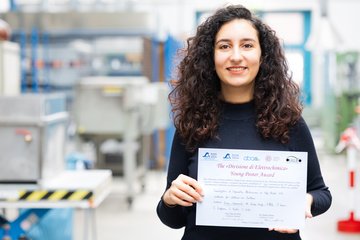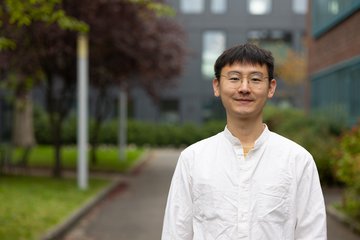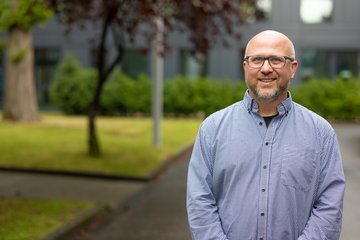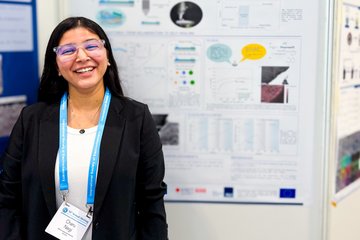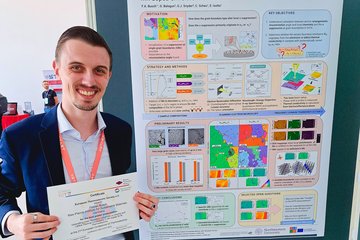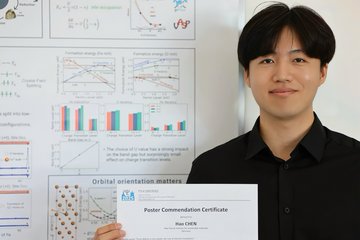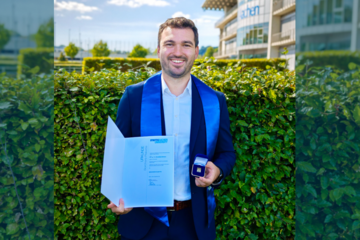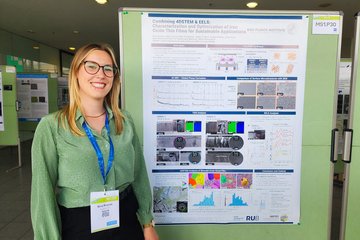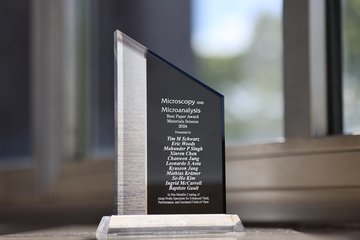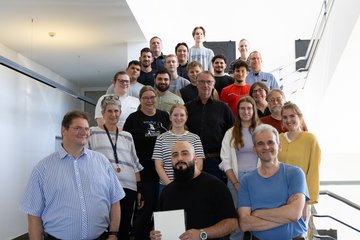All genres
21.
Journal Article
Non-local Thermoelasticity Based on Equilibrium Statistical Thermodynamics. Journal of Elasticity 139, pp. 37 - 59 (2020)
22.
Journal Article
Atomistic phase field chemomechanical modeling of dislocation-solute-precipitate interaction in Ni–Al–Co. Acta Materialia 175, pp. 250 - 261 (2019)
23.
Journal Article
A comparison of different continuum approaches in modeling mixed-type dislocations in Al. Modelling and Simulation in Materials Science and Engineering 27 (7), 074004 (2019)
24.
Journal Article
A simple and flexible model order reduction method for FFT-based homogenization problems using a sparse sampling technique. Computer Methods in Applied Mechanics and Engineering 347, pp. 622 - 638 (2019)
25.
Journal Article
Alloy design for mechanical properties: Conquering the length scales. MRS Bulletin 44 (4), pp. 257 - 265 (2019)
26.
Journal Article
A computational approach towards modellingdislocation transmission across phase boundaries. Philosophical Magazine 99 (17), pp. 2126 - 2151 (2019)
27.
Journal Article
Phase-field-based calculations of the disregistry fields of static extended dislocations in FCC metals. Philosophical Magazine, pp. 1400 - 1428 (2019)
28.
Journal Article
Tunable twin stability and an accurate magnesium interatomic potential for dislocation-twin interactions. Materials and Design 153, pp. 232 - 241 (2018)
29.
Journal Article
Efficient and accurate two-scale FE-FFT-based prediction of the effective material behavior of elasto-viscoplastic polycrystals. Computational Mechanics 61, pp. 751 - 764 (2018)
30.
Journal Article
The concept of control points in hybrid discontinuous Galerkin methods—Application to geometrically nonlinear crystal plasticity. International Journal for Numerical Methods in Engineering 114 (5), pp. 557 - 579 (2018)
31.
Journal Article
Finite-deformation phase-field chemomechanics for multiphase, multicomponent solids. Journal of the Mechanics and Physics of Solids 112, pp. 619 - 636 (2018)
32.
Journal Article
Laminate-based modelling of single and polycrystalline ferroelectric materials – application to tetragonal barium titanate. Mechanics of Materials 117, pp. 235 - 254 (2018)
33.
Journal Article
Competitive bcc and fcc crystal nucleation from non-equilibrium liquids studied by phase-field crystal simulation. Acta Materialia 139, pp. 196 - 204 (2017)
34.
Journal Article
Modelling of grain boundary dynamics using amplitude equations. Continuum Mechanics and Thermodynamics 29 (4), pp. 895 - 911 (2017)
35.
Journal Article
Formulation of strongly non-local, non-isothermal dynamics for heterogeneous solids based on the GENERIC with application to phase-field modeling. Materials Theory (1), 4, pp. 1 - 20 (2017)
36.
Journal Article
Elasto-viscoplastic phase field modelling of anisotropic cleavage fracture. Journal of the Mechanics and Physics of Solids 99, pp. 19 - 34 (2017)
37.
Journal Article
A phase field model for damage in elasto-viscoplastic materials. Computer Methods in Applied Mechanics and Engineering 312, pp. 167 - 185 (2016)
38.
Journal Article
Theoretical and computational comparison of models for dislocation dissociation and stacking fault/core formation in fcc crystals. Journal of the Mechanics and Physics of Solids 95, pp. 719 - 741 (2016)
39.
Journal Article
Two-scale FE–FFT- and phase-field-based computational modeling of bulk microstructural evolution and macroscopic material behavior. Computer Methods in Applied Mechanics and Engineering 305, pp. 89 - 110 (2016)
40.
Journal Article
Nonlinear elastic effects in phase field crystal and amplitude equations: Comparison to ab initio simulations of bcc metals and graphene. Physical Review B 93 (21), 214105 (2016)
